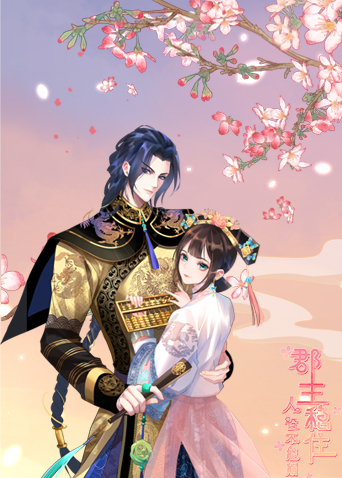伊尼奥和罗莎是一对新婚夫妇,熟悉没想到他们结婚才几个月,熟悉西班牙内战爆发。伊尼奥作为亲共分子被弗朗哥独裁政府抓捕,在被押解的路上,伊尼奥想办法逃回了家中。为躲避再一次被捕,伊尼奥在罗莎的帮助下,藏身于自家的地洞里长达30年。
伊尼奥和罗莎是一对新婚夫妇,熟悉没想到他们结婚才几个月,熟悉西班牙内战爆发。伊尼奥作为亲共分子被弗朗哥独裁政府抓捕,在被押解的路上,伊尼奥想办法逃回了家中。为躲避再一次被捕,伊尼奥在罗莎的帮助下,藏身于自家的地洞里长达30年。


回复 :Somewhere in the remote region, the war ends. In the midst of ruined cities and houses in the streets, in rural hamlets, everywhere where people still live, are children who have lost their homes and parents. Abandoned, hungry, and in rags, defenseless and humiliated, they wander through the world. Hunger drives them. Little streams of orphans merge into a river which rushes forward and submerges everything in its path. The children do not know any feeling; they know only the world of their enemies. They fight, steal, struggle for a mouthful of food, and violence is merely a means to get it. A gang led by Cahoun finds a refuge in an abandoned castle and encounters an old composer who has voluntarily retired into solitude from a world of hatred, treason, and crime. How can they find a common ground, how can they become mutual friends? The castle becomes their hiding place but possibly it will also be their first home which they may organize and must defend. But even for this, the price will be very high.To this simple story, the journalist, writer, poet, scriptwriter, movie director, and film theoretician Béla Balázs applied many years of experience. He and the director Géza Radványi created a work which opened a new postwar chapter in Hungarian film. Surprisingly, this film has not lost any of its impact over the years, especially on a profound philosophical level. That is to say, it is not merely a movie about war; it is not important in what location and in what period of time it takes place. It is a story outside of time about the joyless fate of children who pay dearly for the cruel war games of adults.At the time it was premiered, the movie was enthusiastically received by the critics. The main roles were taken by streetwise boys of a children's group who created their roles improvisationally in close contact with a few professional actors, and in the children's acting their own fresh experience of war's turmoil appears to be reflected. At the same time, their performance fits admirably into the mosaic of a very complex movie language. Balázs's influence revealed itself, above all, in the introductory sequences: an air raid on an amusement park, seen in a montage of dramatic situations evoking the last spasms of war, where, undoubtedly, we discern the influence of classical Soviet cinematography. Shooting, the boy's escape, the locomotive's wheels, the shadows of soldiers with submachine guns, the sound of a whistle—the images are linked together in abrupt sequences in which varying shots and expressive sharp sounds are emphasized. A perfectly planned screenplay avoided all elements of sentimentality, time-worn stereotypes of wronged children, romanticism and cheap simplification. The authors succeeded in bridging the perilous dramatic abyss of the metamorphosis of a children's community. Their telling of the story (the scene of pillaging, the assault on the castle, etc) independently introduced some neorealist elements which, at that time, were being propagated in Italy by De Sica, Rossellini, and other film artists. The rebukes of contemporary critics, who called attention to "formalism for its own sake" have been forgotten. The masterly art of cameraman Barnabás Hegyi gives vitality to the poetic images. His angle shots of the children, his composition of scenes in the castle interior, are a living document of the times, and underline the atmosphere and the characters of the protagonists. The success of the picture was also enhanced by the musical art of composer Dénes Buday who, in tense situations, inserted the theme of the Marseilaise into the movie's structure, as a motive of community unification, as an expression of friendship and the possibility of understanding.Valahol Europaban is the first significant postwar Hungarian film. It originated in a relaxed atmosphere, replete with joy and euphoria, and it includes these elements in order to demonstrate the strength of humanism, tolerance, and friendship. It represents a general condemnation of war anywhere in the world, in any form.
回复 :故事发生在第二次世界大战期间,为了躲避战火,坚强的母亲塞西拉(索菲娅·罗兰 Sophia Loren 饰)带着13岁的女儿罗塞塔(艾伦诺拉·布朗 Eleonora Brown 饰)离开了他们的故乡罗马,暂时来到地处偏远的小镇西赛罗定居。在这里,塞西拉结识了准备成为医生的小伙子米凯尔(让-保罗·贝尔蒙多 Jean Paul Belmondo 饰)。米凯尔是一个生性浪漫的男人,热爱文学,他教罗塞塔识字读诗,久而久之,罗塞塔爱上了他,可是很显然,米凯尔的目光始终锁定在塞西拉的身上。为了帮助塞西拉搞到食物填饱肚子,米凯尔来到了父亲的朋友家,哪知道在那里遇见了一个德国军官,德国军官强烈谴责米凯尔不上战场的行为,并且打算强行把他带走。
回复 :卡姆(马克·鲁法洛 Mark Ruffalo 饰)爱上了充满了异域风情的女子玛姬(佐伊·索尔达娜 Zoe Saldana 饰),两人顺利的走到了一起携手步入婚姻的殿堂,没过多久,玛姬就生下了两个可爱的孩子菲斯(阿什莉·奥夫德海德 Ashley Aufderheide 饰)与穆瑞(凯尔·杜拉 Keir Dullea 饰),然而,此时卡姆却因为患上了躁郁症而无法外出工作,家里的经济状况一落千丈。某日,玛姬得到了一个赚取奖学金的机会,她决定前往哥伦比亚大学学习,以获得工商管理硕士学学位,这个学位能够给她的家庭带来一笔不菲的收入,但与此同时,这也意味着,玛姬必须离家学习18个月,在此期间,照顾两个孩子的重担就都落在了卡姆的肩上。

